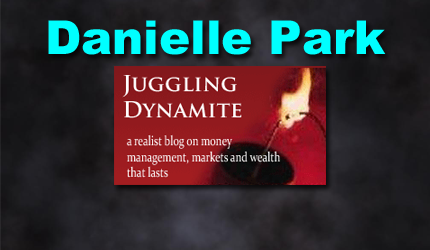Mean reversion is a historic constant…delayed but never avoided. Good summary here.
David Rosenberg, chief economist and strategist at Rosenberg Research, joins BNN Bloomberg to provide his thoughts on the bubble forming in the housing market. He says that we are in a very unstable situation in Canada, and that residential real estate valuations are out of whack. Here is a direct video link.













From what I have seen people don’t give a whit about the interest rate or the principle when buying a house. All they want to know is “what is the monthly payment?”. If they can afford the monthly payment they go ahead and buy the house.
In Canada the most popular loan is the 5 year fixed mortgage with a roll-over privilege for the principle. In the United States the most popular loan is the 30 year fixed mortgage, which I think is the wiser choice because even if the monthly payments are higher you get peace of mind that nothing is going to change for the entire term of the mortgage and also that the home will be fully paid-off in that time. In Canada the 5 year term means that the day of reckoning arrives before the home is paid off. There is risk that the interest rate could be higher, so we have mortgage stress tests so that only the wealthier people can buy a home. Of course wealthier people can afford higher monthly payments.
There is another factor at work here. A while ago I saw a poster in the window of True North Mortgage in downtown Edmonton that said that only 17% of mortgages were for first-time buyers. That means that 83% of buyers were second time buyers and because of the large proportion of such buyers they essentially constitute the housing market. The thing about a second time buyer is that he doesn’t care so much what the new house is going to cost him because he knows that he will get almost the same amount for his old house. So if house prices go to a trillion dollars, he isn’t worried because he will get close to that amount of money for his old house. He is essentially trading one house for another.
Since this second-time buyer as mentioned is essentially the market then there are essentially no “brakes” on the market.